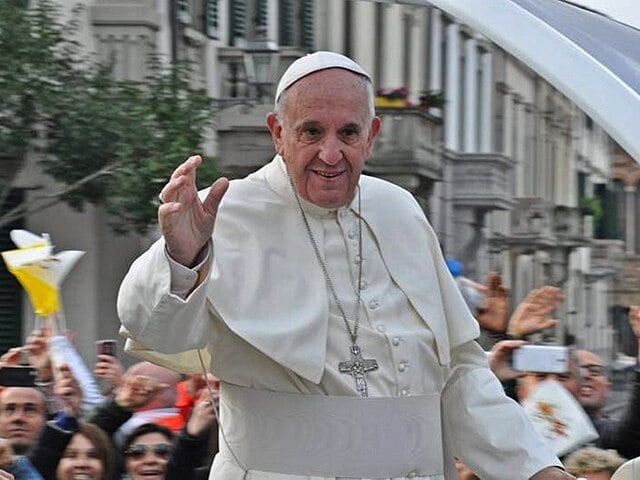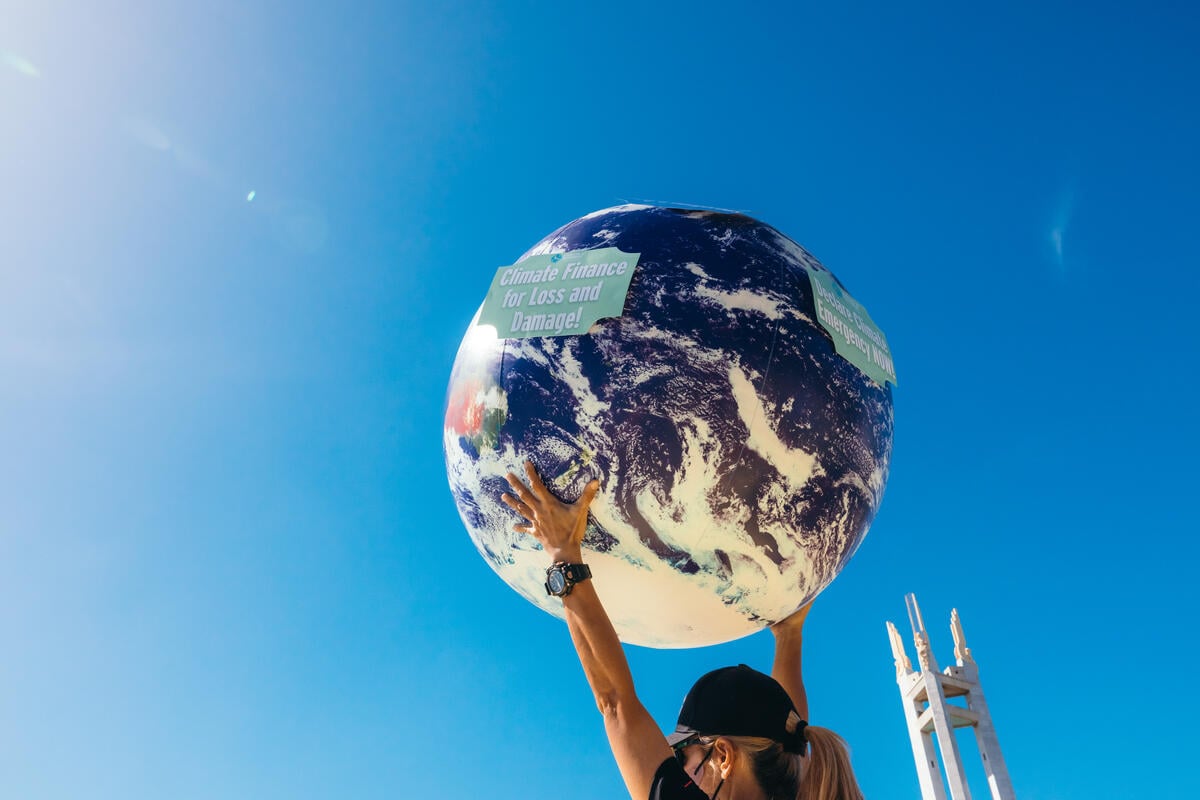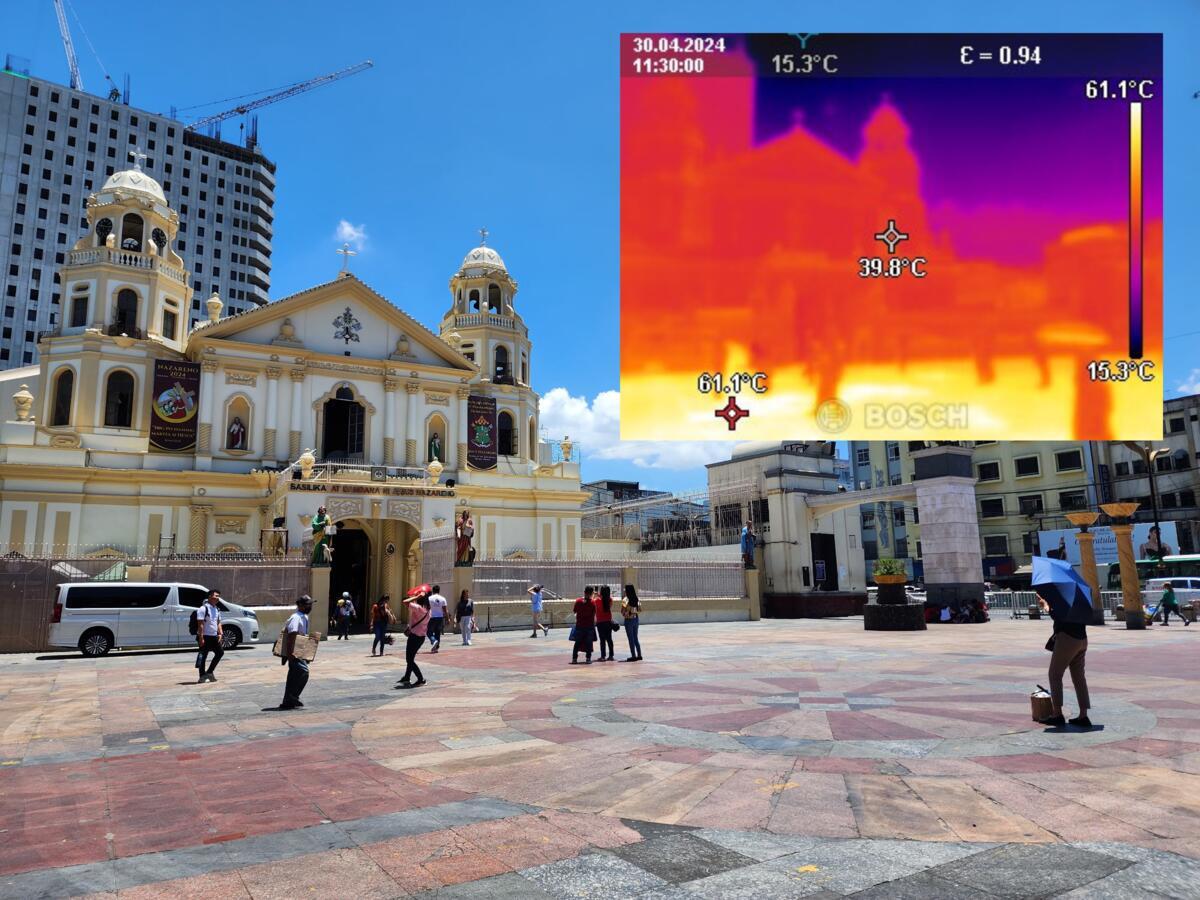New York is the home of the Yankees, Wall Street, and many of the biggest oil, gas, and coal companies, or as we refer to them, the Big Polluters. While bankers traded and yellow cabs roamed the city, the Big Apple hosted the fourth session of a landmark investigation into the responsibility of carbon producers for human rights violations resulting from climate change. The official name of this investigation being conducted by the Commission on Human Rights of the Philippines is the National Inquiry on Climate Change. Next up is London from November 6-8, but let’s have a recap of what happened in New York.
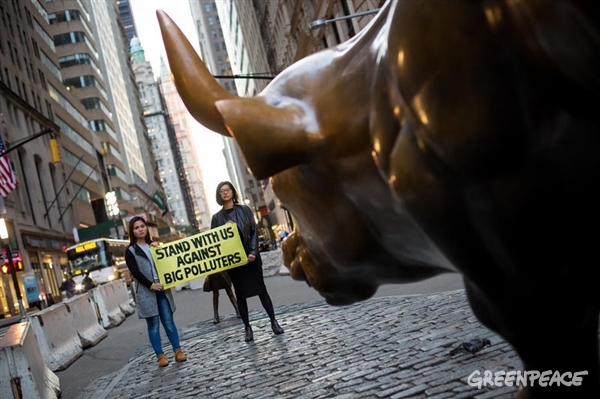
In case you missed it, the full video streaming links are here:
With stories and testimonies that definitely circled the bases, the momentum is building, hopefully for a successful outcome in 2019. To the Commission on Human Rights and viewers from all over the globe, the resource speakers made these points clear: (1) climate change violates human rights because corporations have failed to act, (2) there is no space for climate denial, (3) the fossil fuel companies are responsible, and (4) the Petition does not stand alone.

Climate change violates human rights
The New York hearings brought the discussions back to the heart of the Petition—that climate change is a human rights issue—and a powerhouse of voices spoke this truth.
Three brave Filipinas delivered powerful and interweaving statements of their ordeal with extreme weather events here and abroad. Marinel Ubaldo recounted Super Typhoon Haiyan, while Candice Sering and Tina Cocadiz talked of Hurricane Sandy. Marinel shared a heart-wrenching story of losing her identity and her mother, facing uncertainties, dealing with mental health problems, and struggling for survival as a result of Super Typhoon Haiyan.
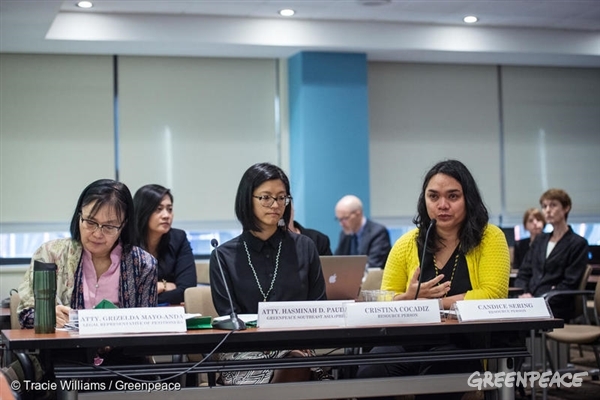
Tina spoke of struggles and hidden costs of experiencing calamities, that of basic human rights being violated, while Candice talked of trauma and rebuilding after the calamity, and shared her fear that people are seeing these as the ‘new normal.’ After Hurricane Sandy destroyed their neighborhood, she expressed a sense of loss of community.
Katherine Lofts of McGill University supported all community witness statements on calamities causing human rights harms, adding that climate change acts as a “threat multiplier” which reinforces social inequalities and worsens existing vulnerabilities. Prof. Cynthia Williams, a resource person on behalf of the Commission, affirmed that climate change is a human rights problem, stating that “we must do more and at scale” and “it’s a tragedy and failure of world governments to take seriously what they need to do,” and she stressed the importance of the Commission’s National Inquiry.
Prof. Erin Daly, Director of Global Network for Human Rights and the Environment, stressed the pivotal importance of human dignity in the legal protection of rights threatened by climate change. Rights affected by climate change (right to life, water, housing, culture, health, etc) are all connected to the right to human dignity. She stated that it cannot be
imagined to live in dignity in a polluted environment. Thus, protecting dignity
means protecting the environment and averting catastrophic climate change.
There is no space for climate denial
It has been established in previous hearings that some of the companies being investigated thrive and profit from deceiving the public about the risks of climate change, but the New York hearings emphasize that the science is strong and indisputable, therefore companies must put an end to climate denial.
Prof. Radley Horton of Columbia University reemphasized the role of greenhouse gas emissions to the Earth’s warming through a presentation of statistics. He claimed that in terms of societal impact, the shifts in warming conditions is hugely important, since these impact the frequency and intensity of extreme events. Similarly, Dr. James Hansen presented recent extreme weather events and scientific data on changing climate. He warned that “there
is substantial warming in the pipeline” and shared potential injustices that can result from this.
On the eve of the public hearings, Marinel shared her story to a crowd in New York, and ended with these powerful words: “No amount of climate denial, or apathy can resurrect our loved ones. But I hope to awaken the minds of those most responsible for climate change, of those who have the greatest capacity to act and change the current system for the protection of vulnerable communities everywhere.”
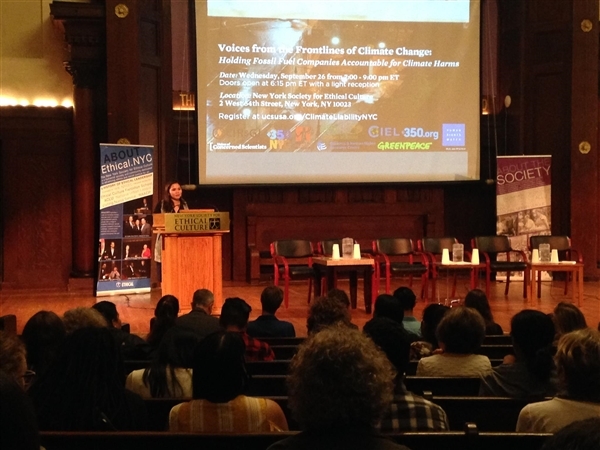
Fossil Fuel Companies are responsible and accountable
Like how Carroll Muffett and other experts divulged Shell’s and other Big Polluters’ climate denial in last month’s hearings, Kert Davis, Founder and Director of the Climate Investigations Center, added to this growing knowledge by revealing a 2013 article by the Committee for A Constructive Tomorrow (CFACT)–an organization funded by Exxon–which stated there are “no worthwhile science or historical records which support the notion that extreme storms have worsened in the Philippines or elsewhere as a result of a warming planet.” Clearly, this is yet another example of those acting in the interest of fossil fuels attempt to confuse the public about climate science.
David Estrin, on the other hand, noted what fossil fuel companies should do voluntarily:
1) acknowledge the need to commit to decarbonizing their products, coupled with corporate policy commitments;
2) have their board pass resolutions on improved investment allocations; and
3) create a Transition Pathway Analysis, while governments and sub governments should take charge in monitoring and regulating such commitments.
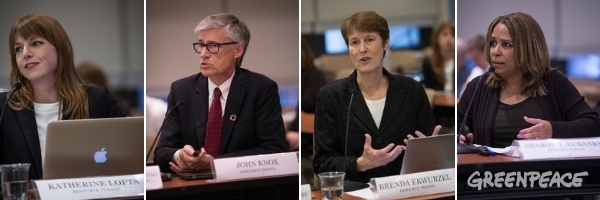
We are not alone in this fight
This petition does not stand alone. It’s the first of its kind but it continues to be part of a wave of climate litigation cases sprouting worldwide.
The inquiry can learn a lot from a case against the similarly destructive tobacco industry. Sharon Eubanks, a former attorney at the US Department of Justice, talked about the case that established the tobacco industry’s accountability for health impacts. The documents from this groundbreaking case showed that the industry used a PR campaign to deny health
consequences and concealed adverse scientific impacts. These acts bear a lot of
similarities to the Carbon Majors’ acts of climate deception.
Even the City of New York has its own share of climate action, and Daniel Zarrili of the Mayor’s Office shared the city’s initiatives to address climate change centered on themes:
mitigation/sustainability, resiliency, and accountability. He discussed the importance of reducing GHG emissions, investments on institutionalizing resiliency, and suing fossil fuel companies that caused the climate crisis.
We may have scored home runs, but the opponents (aka the fossil fuel companies) still refused to show up, even at their home field; though a number of lawyers in very nice suits were in the room furiously taking notes. We can only hope that these lawyers will email CEOs a memo with one piece of advice: Fossil fuel companies should fulfill their responsibilities to the people harmed by climate change, and compliance with human rights obligations require their cooperation with the investigation. Perhaps if the memo is marked urgent, a few visionary, innovative corporate leaders will join us in London on 6-8 November. Until then, we see the New York round as a win, and another step towards #ClimateJustice.
London, here we come.
Add your voice to our call for #ClimateJustice.
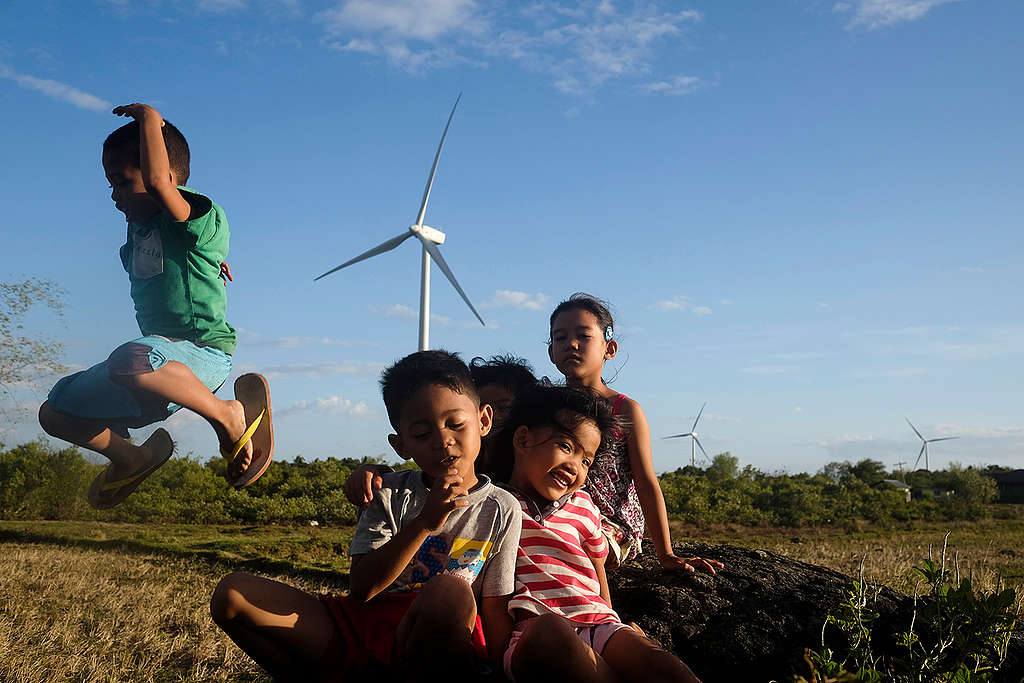
Renewable energy is the key to our country’s energy independence. But coal companies and politicians are holding us back.
TAKE ACTION
